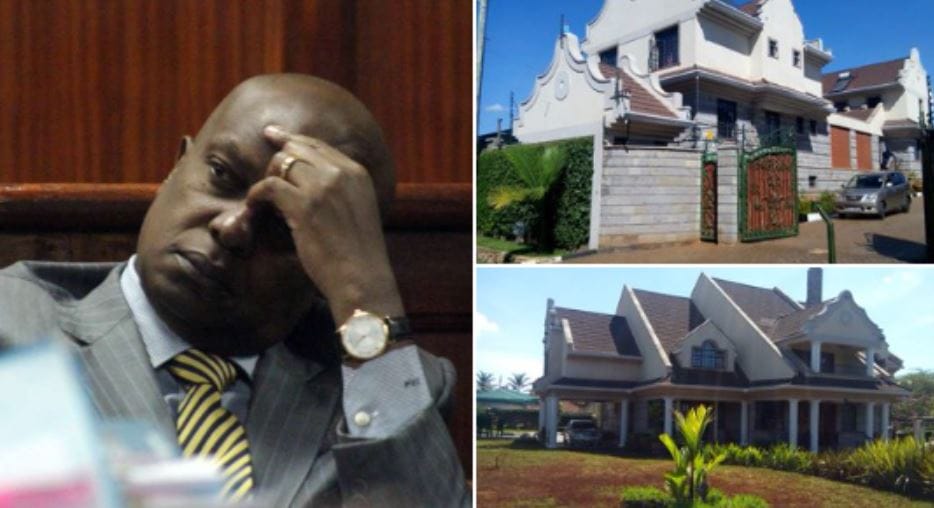Ex-City Hall Finance Chief Appeals to Court to Spare His Runda Home - Nairobi Wire

Source: Nairobi Wire
Author: Richard Kamau
Mr. Kiamba, along with his spouse Tracy Musau, has filed a petition at the High Court in Mombasa requesting an order allowing them to liquidate their property to settle the claim with the Ethics and Anti-Corruption Commission (EACC).
In the petition, Mr. Kiamba argues that during his employment, he managed to build the matrimonial home income through saving.
He states that he used the savings and loans from banks for wheat and livestock farming, subsequently expanding into the hotel industry with establishments in Mombasa and Machakos.
According to the petitioners, Ms. Musau, a career interior designer, built her business from the ground up by establishing an interior design company.
She later ventured into a beauty parlor, enabling her to acquire a property that was leased out to supplement her income from the core business.
The couple argues that in 2014, without their knowledge, the Ethics and Anti-Corruption Commission (EACC) commenced investigations into their affairs, including the registered companies they had interests in, forming an opinion that they possessed unexplained assets.
They also claim that EACC filed a case at the High Court to forfeit the unexplained assets, a move that was eventually granted.
Kiamba and Musau argue that they presented evidence demonstrating that their young family was entitled to the protection of the Constitution concerning rights attributable to family, children, and their presumptive right to own property.
RELATED - Ex-Nairobi Finance Chief Jimmy Kiamba Loses Kes.500m Assets and Kes.114m Cash
They contend that the attachment and forfeiture of their matrimonial home would render them homeless and deprive their children of their rights.
"Part of the so-called unexplained assets, including the matrimonial home, were aptly explained to the extent they were acquired through pooling of resources of the petitioners and loans advanced by financial institutions," the petition states.
The petitioners challenge the constitutionality of certain sections of the Anti-Corruption and Economic Crimes Act.
They argue that some sections of the law are in direct conflict with and contravene the Constitution, specifically the Bill of Rights, as they prescribe a procedure by which an individual is adjudged and instantly presumed guilty until proven otherwise.
Kiamba and his spouse claim the procedure laid down presupposes a mini-trial conducted by the EACC, which, after investigations, is incumbent upon the anti-graft agency to invite rebuttal evidence before it can recommend either prosecution or acquittal of anticipated charges against the suspect.
"It is imperative that the court invokes its interrogative constitutional mandate to interpret the Constitution as invited by the petitioners relating to conflict of laws to safeguard the dictates and gains in criminal and quasi-criminal proceedings for furtherance and protection of the rule of law," the petition states.
The petitioners seek a declaration that Sections 55 (1), 55 (2) (b), 55 (6), 55 (9), 56 (1), and 56 (2) of Aceca are inconsistent and contravene Articles 50 (2) (a), 50 (2) (K), 50 (2) (n), 159 (2) (e), and 160 (1) of the Constitution and are thus unconstitutional and null and void.
Upon the declaration of the unconstitutionality of the sections, the petitioners want a declaration that the orders of the High Court and the Court of Appeal have no force in law. Alternatively, the petitioners seek the exclusion of their matrimonial home situated in Runda Water Estate, Nairobi, from forfeiture by the state.
The petitioners also seek conservatory orders, including staying the implementation or execution of the judgment and orders of the Court of Appeal pending the hearing and determination of their petition.
The court will mention the matter on Thursday for directions.
